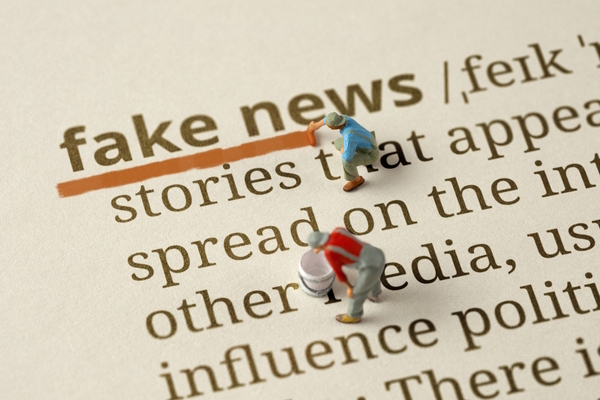The future of personalisation

Almost half of consumers say the right products and services will be coming to them. Jim Rudall at Intuit Mailchimp explains what this means for email marketing
Personalisation is fast becoming what makes or breaks a marketing campaign. Consumers now expect to receive hyper-relevant content from businesses and many see the benefits. According to Intuit Mailchimp’s Brand Trust in the Age of Information Overload report, three in five (60%) “like” personalised content (just 11% don’t) – with the ‘likes’ rising to 75% of those aged 18-24.
For over a third (36%) of Brits, personalisation stops them “missing out” on products, trends and deals – and ensures they are receiving information “they’re genuinely interested in”. Furthermore, 43% appreciate emails about limited stock or exclusive items, a key tactic in diminishing FOMO (the fear of missing out).
As such, it’s perhaps not surprising to learn where consumers believe the future of shopping is headed. Almost half of Brits (48%) say as personalisation evolves, it will mean that the right products and services will be coming to them, not the other way around. This sentiment of seamless discovery, rather than searching, is again felt most acutely by the youngest generations - rising to 72% for 18-34 year-olds.
However, while Brits are happy to trade their personal data in return for increased relevance from marketers, 62% feel they need to see more value in their exchange for them to continue doing so. While it’s encouraging to learn of shoppers’ positive opinions of personalisation right now and their hopes for its potential, marketers urgently need to create strategies that will aid convenience, save time, enable discovery and alleviate FOMO to ensure they capitalise on this momentum.
AI: a win-win for both parties
Many businesses are rightly exploring how Artificial Intelligence (AI) can help them optimise every facet of how they operate, including their marketing functions. From content creation to audience identification, these dynamic personalised recommendations detail when, with what content and on which platform individuals are targeted, enabling marketers to create and deliver campaigns significantly more relevant to shoppers.
This desire for more AI is coming from consumers too. The number of shoppers who prefer only human-made brand content (35%) is nearly half of those who are actively comfortable with AI-informed brand communications (65%). This favour towards AI-influenced content demonstrates the value customers are experiencing through approaches such as data-led personalisation and creativity.
However, AI – even with its prospective time and cost savings – does not make the role of the marketer redundant. Rather, it is the perfect sidekick to creating a more personalised future of marketing, super-charging activations with simple, strategic automation. A great example of this is targeting discounts only to lapsed customers, which represent revenue that a brand could otherwise lose. With the right tools and strategies, both brands and customers can win.
Build trust now for future rewards
But, while consumers see value in personalisation, they don’t want it at any cost. They expect businesses to honour the value exchange by serving them with relevant content and setting clear guardrails around how their data will be used. While four in five British shoppers (80%) need to be assured by brands that they’re using their data responsibly, just a small minority (15%) are unhappy to share their data with brands they trust - illustrating the importance of building a relationship with customers for personalisation to work well.
Trust is hard to build but easy to destroy. Communication is the key tool to build trust up or tear it down. Changes to pricing without clear messaging, for example, could be interpreted as a breach of trust. Mailchimp’s research found that three in five (62%) UK shoppers say they are less likely to stay loyal to a brand that increases its prices silently, while a similar percentage, 55%, would remain loyal to a brand if they raised prices but communicated openly.
If brands can ensure honesty and authenticity in every customer communication, they could enable a continuation of data sharing - and might even create advocates for life.
Personalisation will deliver better ROI
With consumers showing genuine interest in more personalisation, businesses have a very real opportunity to connect with shoppers in a whole new way, building loyal fanbases of repeat customers.
But the benefits don’t stop there. If companies can target the right audience at the right time, and with relevant content, then results show this can drive engagement and increase revenue. Businesses using email can see on average 141% more revenue from their connected stores and a 33% higher click rate when they use predicted segments with their emails than when they don’t.
AI, in partnership with human creativity and the safeguarding of a brand, has the potential to unleash great power in advancing marketers’ goals while making the shopper feel special. Genuine personalisation on a mass scale has long been an unrealisable dream for marketers. AI-aided targeting and content creation provide the means to finally achieve it.
Jim Rudall is Head of EMEA at Intuit Mailchimp
Main image courtesy of iStockPhoto and Pavel Muravev

Business Reporter Team
Most Viewed
23-29 Hendon Lane, London, N3 1RT
23-29 Hendon Lane, London, N3 1RT
020 8349 4363
© 2024, Lyonsdown Limited. Business Reporter® is a registered trademark of Lyonsdown Ltd. VAT registration number: 830519543





